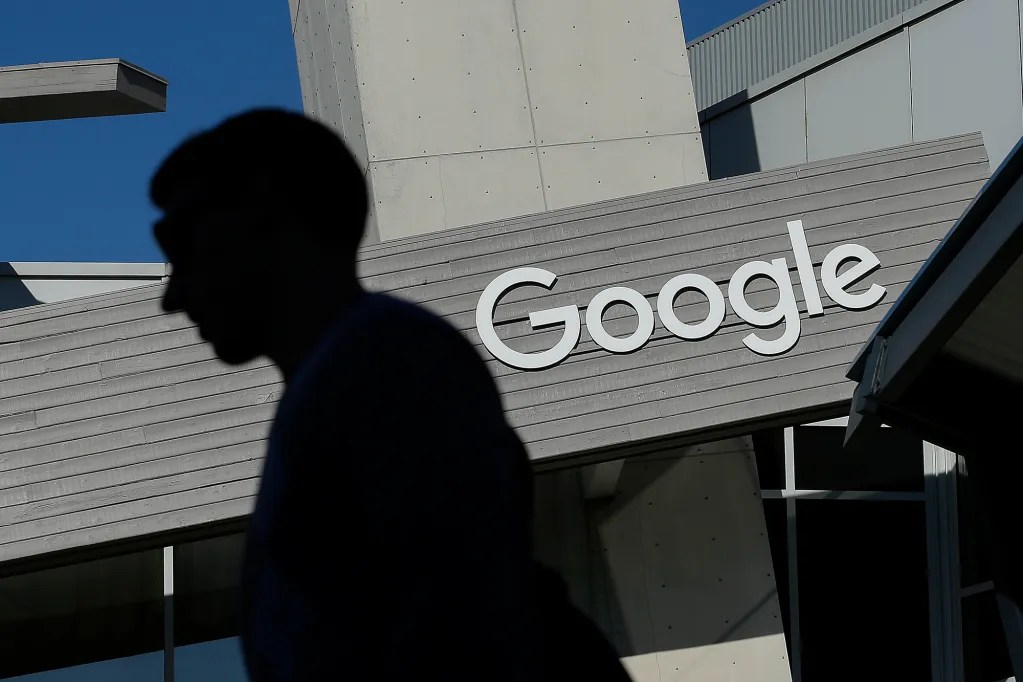
(Bloomberg/Leah Nylen) — The Justice Department gets a second chance to force a breakup of Alphabet Inc.’s Google Monday as it heads to court before the Virginia federal judge who ruled the search giant illegally monopolized advertising technology markets.
Judge Leonie Brinkema in Alexandria is expected to hear testimony over two weeks from website publishers, advertisers, technology experts and Google’s own employees about whether the company should be forced to divest a key piece of its business – the advertising exchange AdX.
The Justice Department and a group of states say a sale is the best way to restore competition in the market for online display advertising, the ads that appear on news sites, blogs and other websites to help offset the cost of producing content. The company says a full divestiture of AdX isn’t needed and instead has proposed to make its ad tech tools work seamlessly with those of rivals.
Google scored a major win earlier this month when a Washington federal judge rejected the US government’s request to force the sale of Google’s Chrome web browser after finding the company illegally monopolized online search. It was one of three recent rulings that found Google violated US antitrust laws.
Related Articles
Donald Trump’s pricey H-1B visas alarm prospects aiming for Silicon Valley jobs
Emerging TikTok deal with China ensures US control of board and crucial algorithm, White House says
Trump shapes immigration gilded age with $100,000 H-1B fee
Bay Area, California post small job gains for August as hiring stalls
Apple’s iPhone 17, Air go on sale to years of demand for new look
In April, Brinkema ruled that Google illegally monopolized ad exchanges – which conduct lightning fast auctions that connect advertisers to websites with ad space – as well as tools used by sites to manage the inventory of space for sale, known as ad servers. Google plans to appeal the ruling, but in the meantime Brinkema is moving forward with designing a remedy for the illegal conduct.
In a blog post Friday, Google said the Justice Department’s proposed divestiture would harm website publishers and advertisers.
“Breaking apart integrated tools would make it harder for publishers to monetize their content and more expensive for advertisers to reach new customers, disproportionately hurting the small businesses who choose to use Google’s tools to grow,” said Lee-Anne Mulholland, Google’s vice president of regulatory affairs.
The search giant is No. 1 in the $757.5 billion global digital ad market, according to 2025 estimates by research firm EMarketer, with the US representing the biggest piece. Google is expected to pull in $86.3 billion in US digital ad revenue in 2025. Most of that – $70.4 billion – comes from Google’s selling ads next to its own search listings. The remaining $15.9 billion is from display ads, the type at issue in the Virginia case.
At trial last year, antitrust enforcers alleged that Google used its position as a middleman in the advertising auctions to drive up the price of ads while paying less to the websites that display them. That harmed websites, which depend on advertising to pay for their costs, as well as consumers who must pay for access to content that might otherwise be free. Since the ad exchange, Adx, was central to Google’s illegal conduct, its sale is the most direct way to remedy the problem, they have argued in court papers.
Google’s Adx handles more than just display ads, also selling ads for mobile apps, video and connected TV, among other formats. While the Justice Department’s proposal would block Google from reentering the market for online display ads for at least five years after the sale of AdX, the search giant would be able to create new tools to sell other types of advertising.
At a speech in Washington last week, the Justice Department’s top antitrust cop said the agency is focused on ensuring remedies in its monopolization cases that support innovation, noting that historic cases involving AT&T and Microsoft Corp. helped establish the Silicon Valley of today.
“The cycle of little tech firms growing big and leading America’s technological success has been continually enabled and reinforced by thoughtful antitrust enforcement,” said Assistant Attorney General for Antitrust Gail Slater.
The ad tech case is one of three major antitrust cases that found the Mountain View, California, tech giant illegally monopolized online markets. A California federal court ruled last year that Google must open up the app store on its Android phones, a decision recently upheld by an appeals court. The search giant is considering an appeal to the Supreme Court.
Meanwhile, a Washington federal judge last year found the company illegally monopolized online search, in a separate case brought by the Justice Department. But in a ruling earlier this month, that judge rejected the government’s request to force Google to sell off its popular Chrome web browser, instead adopting only modest changes mostly recommended by the tech company.
There, Judge Amit Mehta said the introduction of artificial intelligence has changed the market enough to make more drastic interventions unnecessary.
Although not bound by the decisions in other courts, Brinkema indicated she is aware of Mehta’s decision and has invited Google and the Justice Department to offer views on how it should impact her conclusions.
–With assistance from Davey Alba, Josh Sisco and Jimmy Jenkins.
More stories like this are available on bloomberg.com
©2025 Bloomberg L.P.